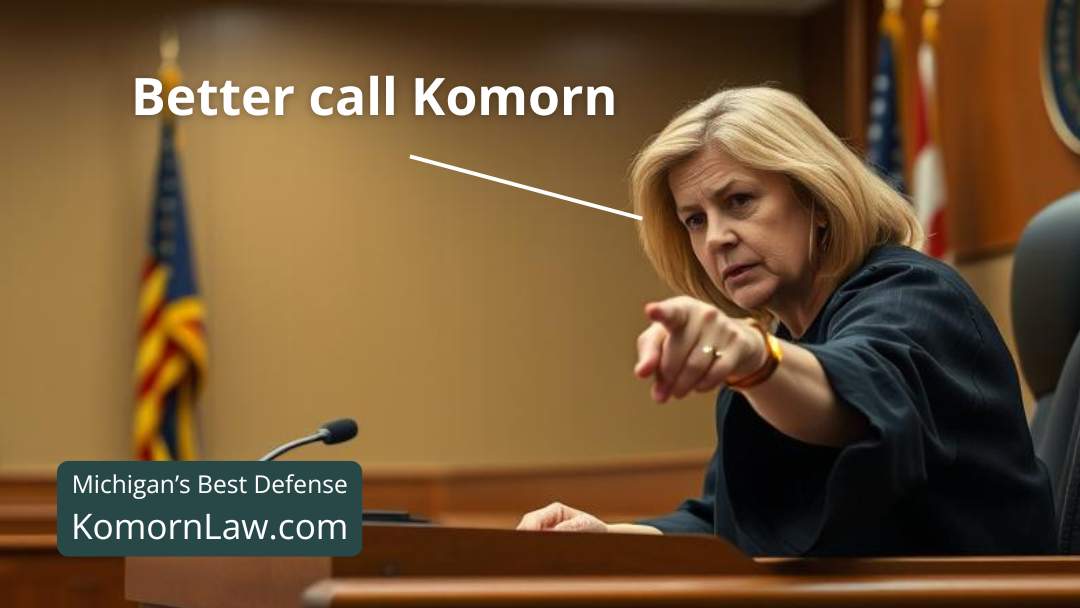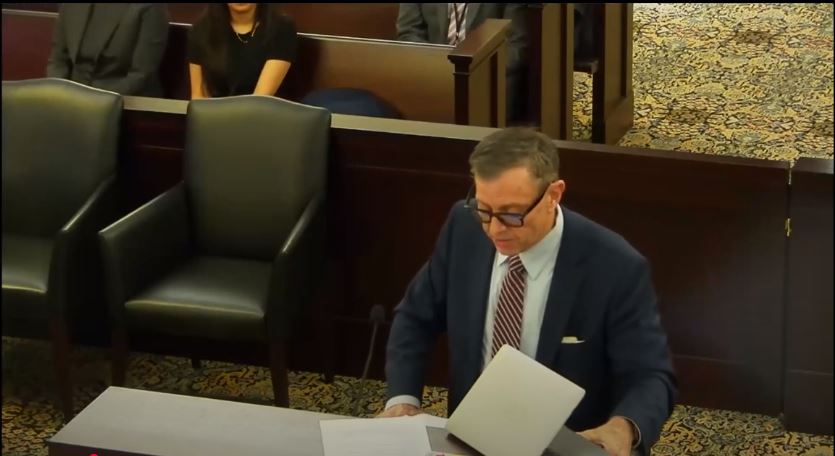Michigan’s Freedom to Work Law Dies in 2024
In February, Michigan’s right-to-work law will be repealed, marking a significant milestone as the state becomes the first in decades to overturn a union-restricting law known as “right-to-work,” which was enacted over a decade ago by a Republican-controlled Legislature.
The state’s “right-to-work” law, which allowed individuals in unionized workplaces to opt out of paying union dues and fees, has been repealed. This repeal is celebrated as a significant triumph for organized labor, especially considering the record-low union membership rates experienced last year. No dues and fees – no contributions.
The Democratic lawmakers pushed through the repeal, which Whitmer said would restore workers’ rights and protect Michiganders on the job.
What was the Michigan Freedom to Work Law?
Michigan’s Freedom to Work laws went into effect on March 28, 2013.
Those laws amend two labor statutes: the Labor Mediation Act (LMA), governing the private sector, and the Public Employment Relations Act (PERA), applying to the public sector. Generally, the FTW laws prohibit union-security agreements, which required that private and/or public employees pay union dues or service fees as a condition of obtaining or continuing employment.
Employees who choose to opt-out of the union are still afforded rights and benefits as members of the bargaining unit. Additionally, the FTW laws do not prohibit employees from joining or financially assisting a labor organization or participating in collective bargaining with an employer.
In some of the Commission’s freedom to work decisions issued prior to the U. S. Supreme Court’s decision in Janus v. AFSCME Council 31, et al., 585 U.S. ___ (2018), there may be language that is not consistent with the decision in Janus.
In Janus, the Court held that States and public-sector unions may no longer extract agency fees from nonconsenting employees because this is a violation of the employees’ First Amendment rights.
Michigan’s Freedom to Work laws FAQ
Michigan-Right to Work_Private Sector Poster
Michigan-Right to Work_Public Sector Poster
Laws and Historical Links
Remember Right to Work DOD 1/1/24. There is a lot here but we started out with a couple news articles and then listed some legislature.
News and Laws
PBS Article
Michigan becomes 1st state in decades to repeal ‘right-to-work’ law
PBS Mar 24, 2023 4:51 PM EST
LANSING, Mich. (AP) — Michigan, long known as a mainstay of organized labor, on Friday became the first state in decades to repeal a union-restricting law known as “right-to-work” that was passed over a decade ago by a Republican-controlled Legislature.
The state’s “right-to-work” law had allowed those in unionized workplaces to opt out of paying union dues and fees. Its repeal is seen as a major victory for organized labor with union membership reaching an all-time low last year.
“Today, we are coming together to restore workers’ rights, protect Michiganders on the job, and grow Michigan’s middle class,” Democratic Gov. Gretchen Whitmer said in a statement Friday after signing the legislation. Go to PBS if you dare for more.
USA TODAY: Michigan becomes first state in decades to repeal ‘right to work’ law. Here’s what that means.
In a win for unions, Michigan Gov. Gretchen Whitmer has signed Democratic legislation repealing thestate’s right-to-work law.
The move makes Michigan the first state in decades to repeal the union-restriction law. Whitmer also signed legislation restoring a prevailing wage law that the state’s Republican lawmakers repealed in 2018.
“Today, we are coming together to restore workers’ rights, protect Michiganders on the job, and grow Michigan’s middle class,” Whitmer said in a statement Friday. “Michigan workers are the most talented and hard-working in the world and deserve to be treated with dignity and respect.”
EMPLOYMENT RELATIONS COMMISSION (EXCERPT)
Act 176 of 1939
***** 423.1 THIS SECTION IS AMENDED EFFECTIVE 91 DAYS AFTER ADJOURNMENT OF THE 2023 REGULAR SESSION SINE DIE: See 423.1.amended *****
423.1 Declaration of public policy.
Sec. 1.
History: 1939, Act 176, Imd. Eff. June 8, 1939 ;– CL 1948, 423.1 ;– Am. 2012, Act 348, Eff. Mar. 28, 2013
Constitutionality: Michigan’s labor mediation law was held invalid where it conflicted with provisions of the national labor relations act. International Union of United Automobile, Aircraft and Agricultural Implement Workers of America, CIO v O’Brien, Prosecuting Attorney, 339 US 454; 70 S Ct 781; 94 L Ed 978 (1949).
Compiler’s Notes: For transfer of powers and duties relating to promulgation of rules by the employment relations commission from the department of labor to the director of the department of consumer and industry services, see E.R.O. No. 1996-2, compiled at MCL 445.2001 of the Michigan Compiled Laws.Enacting section 1 of Act 348 of 2012 provides:”Enacting section 1. If any part or parts of this act are found to be in conflict with the state constitution of 1963, the United States constitution, or federal law, this act shall be implemented to the maximum extent that the state constitution of 1963, the United States constitution, and federal law permit. Any provision held invalid or inoperative shall be severable from the remaining portions of this act.”
| Rendered 1/3/2024 16:23:45 | Michigan Compiled Laws Complete Through PA 319 of 2023 |
| Courtesy of www.legislature.mi.gov | |
PUBLIC EMPLOYMENT RELATIONS (EXCERPT)
Act 336 of 1947
***** 423.210 THIS SECTION IS AMENDED EFFECTIVE 91 DAYS AFTER ADJOURNMENT OF THE 2023 REGULAR SESSION SINE DIE: See 423.210.amended *****
423.210 Prohibited conduct by public employer or officer or agent; prohibited conduct by labor organization; conduct not required as condition for obtaining or continuing public employment; exception; enforceability of agreement, contract, understanding, or practice; jurisdiction of court; appropriation; violation; civil fine; verification by independent examiner; declaration identifying local bargaining units; civil action.
Sec. 10.
History: Add. 1965, Act 379, Imd. Eff. July 23, 1965 ;– Am. 1973, Act 25, Imd. Eff. June 14, 1973 ;– Am. 2012, Act 53, Imd. Eff. Mar. 16, 2012 ;– Am. 2012, Act 349, Eff. Mar. 28, 2013 ;– Am. 2014, Act 414, Imd. Eff. Dec. 30, 2014
Constitutionality: In Lehnert v Ferris Faculty Association, 500 US 507; 111 S Ct 1950; 114 L Ed 2d 572 (1991), the United States Supreme Court held that a collective-bargaining unit constitutionally may compel its employees to subsidize only certain union activities. “[I]n determining which activities a union constitutionally may charge to dissenting employees … chargeable activities must (1) be ‘germane’ to collective-bargaining activity; (2) be justified by the government’s vital policy interest in labor peace and avoiding ‘free riders’; and (3) not significantly add to the burdening of free speech that is inherent in the allowance of an agency or union shop.”Ruling on the respondent union’s disputed activities, the Court held:(1) The respondent may not charge the funds of objecting employees for a program designed to secure funds for Michigan public education or for that portion of a union publication that reports on those activities. The Court found none of the activities “to be oriented toward the ratification or implementation of petitioner’s collective-bargaining agreement.”(2) The respondent may bill dissenting employees for their share of general collective-bargaining costs of the state or national parent union. The district court had found these costs to be germane to collective bargaining and similar support services; the court agreed with the finding.(3) The respondent may not charge for the expenses of litigation that does not concern the dissenting employees’ bargaining unit or, by extension, union literature reporting on such activities. The Court found extra-unit litigation to be proscribed by the First Amendment of the United States Constitution because it is “more akin to lobbying in both kind and effect” and not germane to a union’s activities as an exclusive bargaining agent.(4) The respondent may not bill for certain public relations activities. The Court states: “[T]he … activities … entailed speech of a political nature in a public forum. More important, public speech in support of the teaching profession generally is not sufficiently related to the union’s collective-bargaining functions to justify compelling dissenting employees to support it. Expression of this kind extends beyond the negotiation and grievance-resolution contexts and imposes a substantially greater burden upon First Amendment rights … .”(5) The respondent may charge for those portions of a union publication that concern teaching and education generally, professional development, unemployment, job opportunities, union award programs, and miscellaneous matters. The Court noted that such informational support services are neither political nor public in nature and that expenditures for them benefit all, without additional infringements upon the First Amendment.(6) The respondent may bill for fees to send delegates to state and national affiliated conventions. The Court found that participation by local members in the formal activities of the parent is an important benefit of affiliation and an essential part of a union’s discharge of its duties as a bargaining agent.(7) The respondent may charge expenses incidental to preparation for a strike which, had it occurred, would have been illegal under Michigan law. The Court, noting that the Michigan Legislature had imposed no restriction, stated there was no First Amendment limitation on such charges. The Court added that such expenses are “substantively indistinguishable from those appurtenant to collective-bargaining negotiations … enure to the direct benefit of members of the dissenters’ unit … and impose no additional burden upon First Amendment rights.”
Compiler’s Notes: Enacting section 1 of Act 349 of 2012 provides:”Enacting section 1. If any part or parts of this act are found to be in conflict with the state constitution of 1963, the United States constitution, or federal law, this act shall be implemented to the maximum extent that the state constitution of 1963, the United States constitution, and federal law permit. Any provision held invalid or inoperative shall be severable from the remaining portions of this act.”Enacting section 1 of Act 414 of 2014 provides:”Enacting section 1. If any part or parts of this act are found to be in conflict with the state constitution of 1963, the United States constitution, or federal law, this act shall be implemented to the maximum extent that the state constitution of 1963, the United States constitution, and federal law permit. Any provision held invalid or inoperable shall be severable from the remaining portions of this act.”
Popular Name: Public Employment Relations
| Rendered 1/3/2024 16:25:27 | Michigan Compiled Laws Complete Through PA 319 of 2023 |
| Courtesy of www.legislature.mi.gov | |
THE SOCIAL WELFARE ACT (EXCERPT)
Act 280 of 1939
400.106a “Michigan freedom to work for individuals with disabilities law” as short title of section; medical assistance to individuals with earned income; establishment of program; limitation; permitted acts; premium; basis; sliding fee scale; revenue; limitation; waiver; definitions.
Sec. 106a.
History: Add. 2003, Act 32, Imd. Eff. July 2, 2003 ;– Am. 2012, Act 356, Eff. Mar. 28, 2013 ;– Am. 2014, Act 518, Imd. Eff. Jan. 14, 2015
Popular Name: Act 280
|
|
|
| Rendered 1/3/2024 16:47:56 | Michigan Compiled Laws Complete Through PA 319 of 2023 |
| Courtesy of www.legislature.mi.gov | |
National Labor Relations Act
The Law
In 1935, Congress passed the National Labor Relations Act (“NLRA”), making clear that it is the policy of the United States to encourage collective bargaining by protecting workers’ full freedom of association. The NLRA protects workplace democracy by providing employees at private-sector workplaces the fundamental right to seek better working conditions and designation of representation without fear of retaliation.
The National Labor Relations Act protects most employees whether the workplace is unionized or non-unionized. Visit this page to learn more about strikes, concerted activity, the use of social media under the NLRA, union dues, and much more.
The Board has statutory jurisdiction over private sector employers whose activity in interstate commerce exceeds a minimal level. Over the years, it has established standards for asserting jurisdiction, which are described below.
More Posts

Legal Tip – Driving High on Cannabis in Michigan
Driving under the influence of cannabis is illegal and carries serious consequences in Michigan.We have fought and won many cases from the District Courts, Circuit Courts, Court of Appeals and the Supreme Court through out the State of Michigan. We have also fought...

Michigan House Bill NO. 4391
It may just be easier to collect and analyze tears.This legislation seeks to integrate saliva testing for cannabis within law enforcement procedures, designating a refusal to participate in this testing as a criminal offense, similar to the penalties imposed for...

Legal Tip – Your Rights During a DUI Stop in Michigan
Komorn Law - Quick Legal TipsLegal Tip: Understanding Your Rights During a DUI Stop in Michigan A DUI stop can be stressful, but knowing your rights is crucial. You have the right to remain silent. You are not obligated to answer questions beyond basic identification....

Forfeiture without Criminal Charges
Can the police seize your belongings and hold it without charging you with a crime?Read the summary below and watch Attorney Michael Komorn in the Court of Appeals.Summary of "Ruben Delgado v. Michigan State Police": This case was filed in the Jackson County Circuit...

23andMe filed for Chapter 11 bankruptcy and your data is?
As of Friday 3/28/25, the firm’s shares were worth less than a dollar.If you are charged with a crime you're part of the State of Michigan family now. Call us - Because you don't want to be a part of that family. Komorn Law (248) 357-2550Genetic testing service...

Judge finds marijuana testing facilities run by ex-cops violated testing results
Viridis Laboratories has faced ongoing allegations of exaggerating THC levels while minimizing the potential risks associated with cannabis.If you are charged with a crime you're part of the State of Michigan family now. Call us - Because you don't want to be a part...

Domestic Violence Conviction Prohibits Gun Ownership
No Second Amendment Rights For YouIf you are charged with a crime you're part of the State of Michigan family now. Call us - Because you don't want to be a part of that family. Komorn Law (248) 357-2550A federal judge in Michigan has ruled that a man with a prior...

Update on Michigan’s Sick Time Act (Small Business Compliance)
Small Business Compliance Accrual Method: Employees accrue 1 hour of paid sick time forevery 30 hours worked, and unused paid sick time rolls over upto 72 hours, or 40 for a small business. Employers may limit theuse of earned sick time to 72 hours, or 40 for a small...

What Are Your Rights Before And After Arrest?
What are your rights before and after arrest?Generally, police require a search warrant to lawfully enter any private premises or to search electronic devices such as your phone or computer. If the police do not possess a search warrant, you are under no obligation to...

Drones – What Drones? Update
Drone story update January 28, 2025 NJ drones 'were authorized to be flown by FAA for research,' Donald Trump says The mysterious drones that captivated New Jersey late last year were not enemy craft, but instead were authorized by the FAA, President Donald Trump said...











